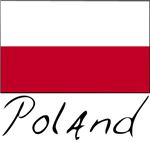Polish martial-law leader, frail but firm, denies crimes
 Warsaw - Former Polish leader General Wojciech Jaruzelski took the stand Thursday against charges of communist-era crimes, calling them baseless and saying martial law was needed in 1981 to avoid a Soviet-bloc invasion.
Warsaw - Former Polish leader General Wojciech Jaruzelski took the stand Thursday against charges of communist-era crimes, calling them baseless and saying martial law was needed in 1981 to avoid a Soviet-bloc invasion.
Jaruzelski, 85, read from a prepared statement in the Warsaw court, the stage for Poland's highest-profile effort to bring Soviet-era leaders to justice.
"The hard decision was motivated by a higher necessity," he testified to a room full of his former military aides and elderly former Solidarity members.
He said martial law saved Poland from the greater "catastrophe" of a Warsaw Pact invasion - the former military man's key argument virtually from the start.
Prosecutors allege that Jaruzelski, now in frail health, led a "criminal armed organization" when he and other leaders created an emergency ruling body during the martial law crackdown, which aimed to break the Solidarity trade union.
Jaruzelski faces up to 10 years in jail if found guilty.
On Thursday, he appeared in court wearing the trademark dark glasses he needs due to an eye condition. He walked slowly to the stand and appeared frail, but read his statement calmly and with conviction.
No ex-communist Polish leaders have been convicted of crimes since the 1981 crackdown, when up to 100 people died and thousands of Solidarity activists and other dissidents were jailed.
Nearly three decades after martial law, Jaruzelski's trial still raised emotions.
A former Solidarity member who once printed leaflets for the labour union when it was outlawed said justice was coming too late.
"I remember. He should have been tried in the 1990s, but now who cares about this trial? Only his colonels and a few others," said the 72-year-old man, who declined to give his name.
A Polish court in June quashed earlier rulings that had called for new evidence in Jaruzelski's trial, including calls for additional documents from Russian archives and interviews with leaders such as former British prime minister Margaret Thatcher and former Soviet president Mikhail Gorbachev.
Despite imposing martial law, Jaruzelski was forced to negotiate with Solidarity after strikes broke out nationwide. He resigned as Poland's leader and was replaced by Walesa, who became Poland's president in the country's first democratic elections in 1990.
Jaruzelski was tried in 2001 for a 1970 massacre in the Gdansk shipyards, but the proceedings petered out after he claimed health problems. (dpa)